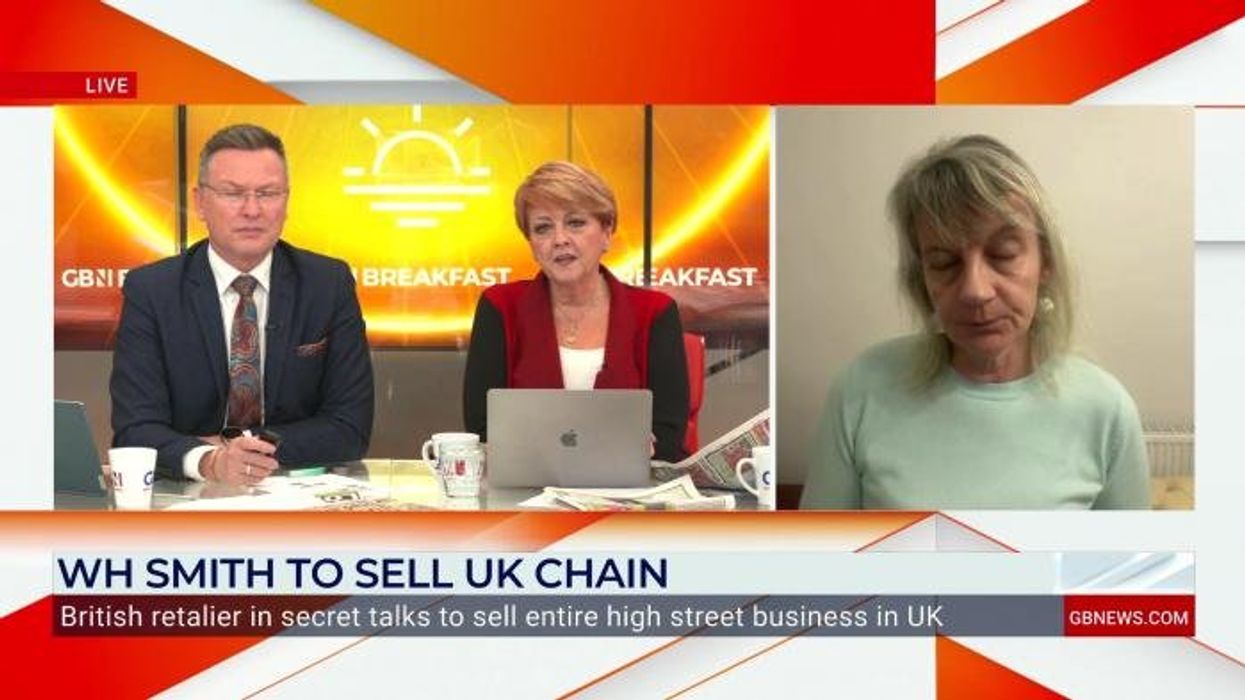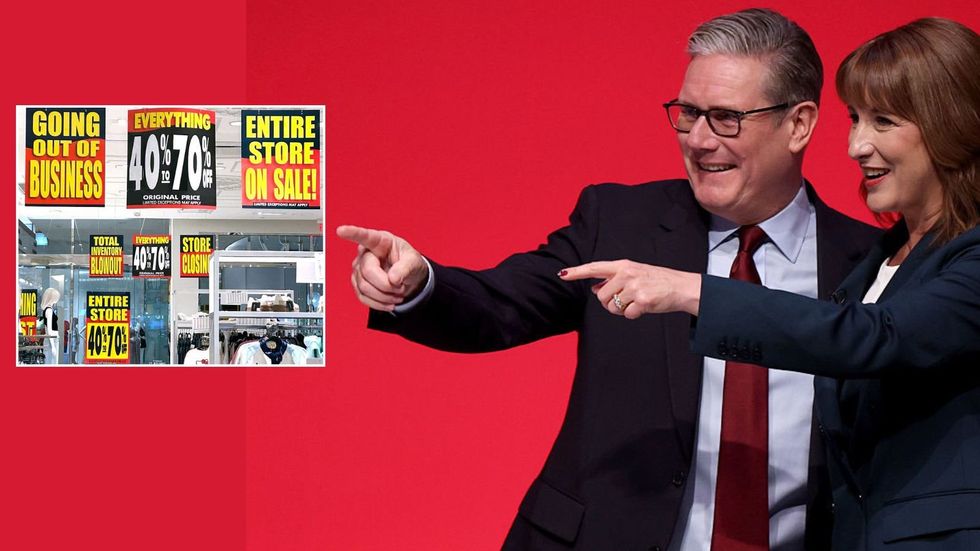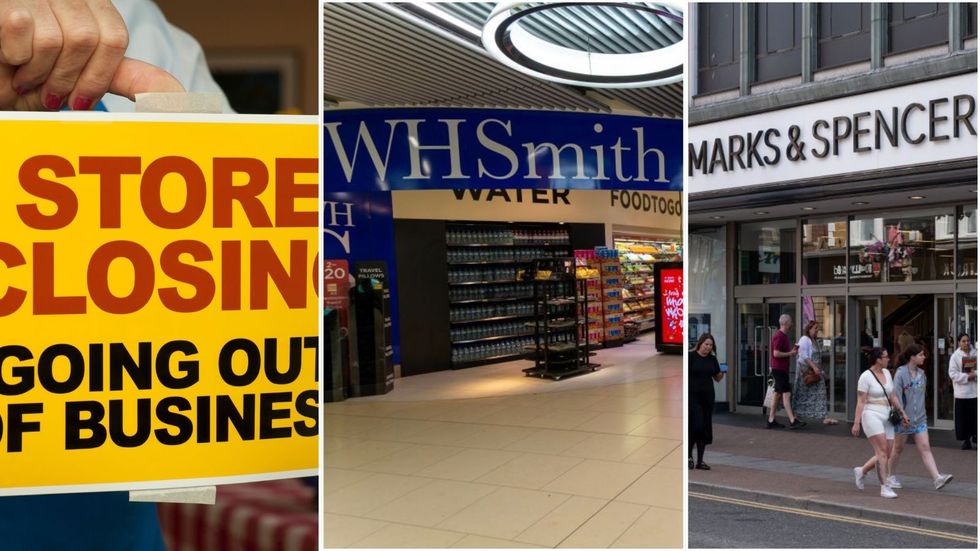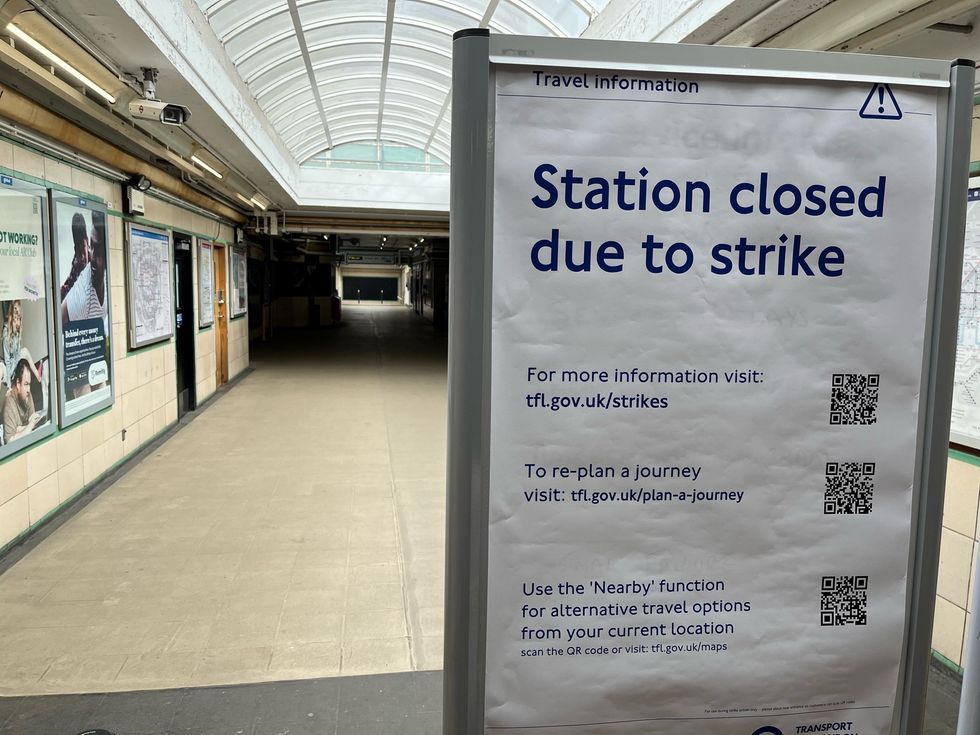Store closures risk as footfall on UK high streets plummets after Rachel Reeves's tax hikes

Helen Dewdney discusses the death of the high street as it's revealed WHSmith is in talks to sell up |
GB News

Retailers warn of mounting costs and urge Chancellor to ease tax burdens amid sharp drop in shoppers
Don't Miss
Most Read
Britain's high streets face an escalating crisis as shopper numbers fell sharply last month, raising fears of widespread shop closures.
The figures emerge as retailers continue to grapple with the financial aftermath of last year’s Budget, as Chancellor Rachel Reeves’s tax measures imposed an additional £5billion in employment costs on the retail sector, alongside new packaging levies.
The nation’s traditional shopping streets bore the brunt of the downturn, suffering a 2.5 per cent decrease in visitors.
This represents a dramatic reversal from August, when high streets had enjoyed a 1.1 per cent increase.
TRENDING
Stories
Videos
Your Say
Shopping centres experienced a two per cent year-on-year decline in visitor numbers during September, while retail parks proved marginally more resilient with a 0.8 per cent decrease.
This marked the first occasion since June when all three retail destination types recorded annual declines in shopper traffic.
The downturn affected every nation within the UK, with Northern Ireland witnessing the smallest decrease at 0.5 per cent, while England saw footfall drop by 1.8 per cent.
Scotland experienced a steeper decline of 2.3 per cent and Wales suffered the most severe reduction, with visitor numbers plummeting by 2.5 per cent compared with September 2024.

Britain's high streets face an escalating crisis as shopper numbers fell sharply last month, raising fears of widespread shop closures
|GETTY
These figures paint a concerning picture for retailers already struggling with mounting operational costs and subdued consumer confidence.
The financial pressures stem directly from measures introduced in the previous Budget, which have severely constrained retailers’ capacity to invest in their businesses and local communities.
Beyond the substantial employment cost increases, merchants must also contend with additional packaging taxes that further erode their margins.
Helen Dickinson, Chief Executive of the British Retail Consortium, highlighted how these Government-imposed burdens have undermined retailers’ ability to enhance shopping destinations.
Latest Developments
 High street shops across the UK continue to close | GETTY
High street shops across the UK continue to close | GETTY"Retailers’ ability to invest in local communities and high streets has been hampered by last year's Budget, which added £5billion in employment costs to the industry, in addition to a new packaging tax," Ms Dickinson said.
The cumulative effect of these fiscal measures has created an environment where retailers struggle to allocate resources towards improvements that might attract shoppers back to physical stores.
Ms Dickinson warned that the forthcoming Budget represents a crucial opportunity for the Chancellor to reverse course.
"For retailers to invest in shopping destinations that will entice shoppers back, the Government-imposed cost burdens holding back that investment must be lifted," she emphasised.
She urged the Government to honour its manifesto pledge by delivering substantial business rates reform.
"The upcoming Budget is the moment for the Chancellor to do just that, deliver the Labour manifesto commitment of a meaningful reduction in business rates for the industry and ensure no shop pays more in the process," Ms Dickinson stated.
Her intervention underscores the retail sector’s urgent need for fiscal relief to prevent further deterioration of Britain’s shopping districts.
Andy Sumpter, Retail Consultant EMEA for Sensormatic, attributed September’s poor performance to multiple disruptive factors beyond economic concerns.

London's Tube strikes mid-month and Storm Amy at the end brought widespread disruption
| PA"September saw footfall falter once more, with total UK retail visits down 1.8 per cent year-on-year," Mr Sumpter noted.
He identified specific events that compounded consumer hesitancy, including transport disruptions in the capital and severe weather conditions.
He explained: "London's Tube strikes mid-month and Storm Amy at the end brought widespread disruption, impacting shopper activity nationwide."
Despite the challenging conditions, he expressed cautious optimism about the final quarter.
Mr Sumpter added: "Retailers will now be hoping that September's slowdown was less a sign of retreat, and more a pause for thought."
More From GB News










